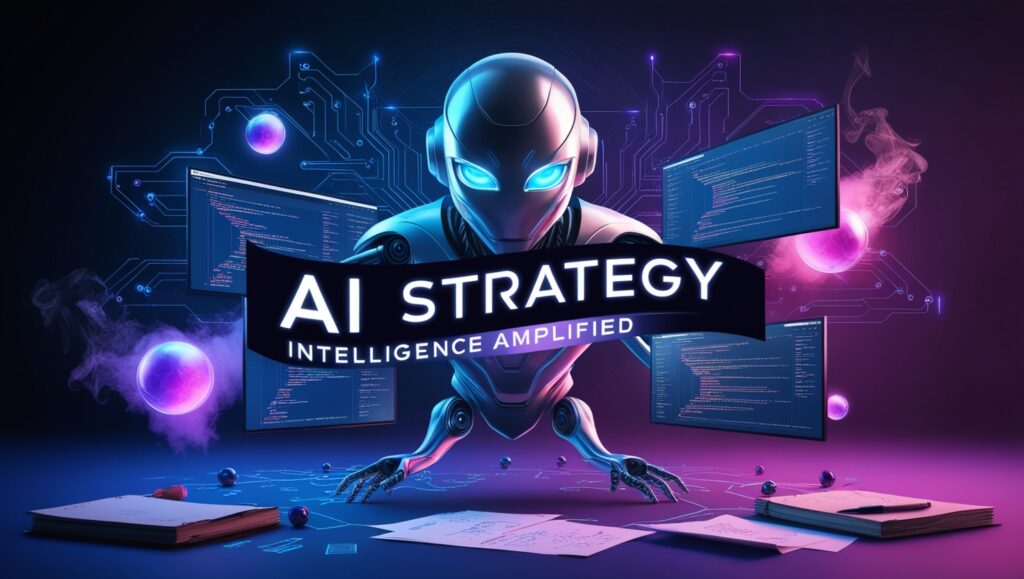In recent years, artificial intelligence (AI) has surged to the forefront of digital marketing, transforming how businesses connect with customers, personalize experiences, and optimize their strategies. AI-driven tools and machine learning algorithms now empower marketers to make smarter, data-driven decisions faster than ever before. In this article, we’ll dive into how AI is reshaping digital marketing and explore some of the top AI tools and strategies you should know about to stay competitive in 2024 and beyond.

Understanding the Role of AI in Digital Marketing
AI in digital marketing encompasses a range of technologies that process and analyze vast amounts of data, identify patterns, and make automated decisions. By leveraging AI, marketers can automate repetitive tasks, predict consumer behavior, personalize experiences, and improve campaign performance. This technology enables brands to engage customers more efficiently and deliver content that feels more relevant and timely.
Key Benefits of AI in Digital Marketing:
- Personalized Customer Experiences – AI allows for customized content delivery based on real-time data about consumer behavior.
- Enhanced Data Analysis – Machine learning algorithms can analyze complex data sets, providing actionable insights for better decision-making.
- Improved ROI – AI optimizes campaigns to target the right audience at the right time, reducing waste and increasing return on investment.
- Streamlined Operations – Automation through AI reduces manual effort, allowing marketers to focus on strategy.
Top AI Tools and Strategies for Digital Marketing

1. AI-Powered Content Creation
Tools like GPT-3 and DALL-E are revolutionizing content creation, helping marketers generate written content, images, and even video scripts more efficiently.
2. Predictive Analytics
AI algorithms can forecast trends, customer behavior, and campaign performance, enabling proactive strategy adjustments.
3. Chatbots and Conversational AI
Advanced chatbots provide 24/7 customer service, qualify leads, and personalize interactions at scale.
4. AI-Enhanced SEO
Tools like Clearscope and MarketMuse use AI to optimize content for search engines, improving organic visibility.
5. Dynamic Pricing
AI algorithms adjust prices in real-time based on demand, competition, and other factors to maximize revenue.
Implementing AI in Your Digital Marketing Strategy
To effectively incorporate AI into your digital marketing efforts:
- Start with clear objectives and identify areas where AI can have the most impact.
- Invest in quality data collection and management to fuel AI algorithms effectively.
- Choose AI tools that integrate well with your existing marketing technology stack.
- Continuously monitor and refine AI-driven processes to ensure optimal performance.
Implementing AI in Your Digital Marketing Strategy

To effectively incorporate AI into your digital marketing efforts:
- Start with clear objectives and identify areas where AI can have the most impact.
- Invest in quality data collection and management to fuel AI algorithms effectively.
- Choose AI tools that integrate well with your existing marketing technology stack.
- Continuously monitor and refine AI-driven processes to ensure optimal performance.
Conclusion
As AI continues to evolve, it’s becoming an indispensable part of digital marketing. By embracing AI tools and strategies, marketers can gain a competitive edge, deliver more personalized experiences, and achieve better results. Stay informed about the latest AI developments and be prepared to adapt your strategies to leverage this powerful technology.
Challenges and Ethical Considerations of AI in Digital Marketing
While AI offers powerful advantages, it also presents challenges and ethical questions for marketers:
- Data Privacy: AI depends on vast amounts of data to operate effectively. Marketers must prioritize data privacy and comply with regulations like GDPR to protect customer information.
- Bias in Algorithms: AI algorithms can unintentionally perpetuate bias if trained on biased data. This can lead to unfair targeting or even exclusion of certain demographics.
- Over-Reliance on Automation: While automation is efficient, over-reliance on AI may reduce the personal touch that consumers value. Striking a balance between automation and human interaction is essential.
Future Trends in AI-Driven Digital Marketing
Looking ahead, several trends suggest AI will continue to evolve in digital marketing:
- Emotion AI: By analyzing facial expressions, tone of voice, and word choice, Emotion AI can help brands understand customer sentiment on a deeper level, making it possible to create more emotionally resonant campaigns.
- Hyper-Personalization: AI will enable even more precise personalization, anticipating customer needs and delivering tailored experiences in real-time.
- Augmented Reality (AR) and Virtual Reality (VR): AI-driven AR and VR are set to transform product experiences, offering virtual try-ons or interactive demonstrations that bring products to life online.
- AI-Powered Marketing Mix Optimization: As AI becomes more sophisticated, it will help marketers determine the best combination of channels, content, and timing for optimal results.
Written By : HASSAN KHAN